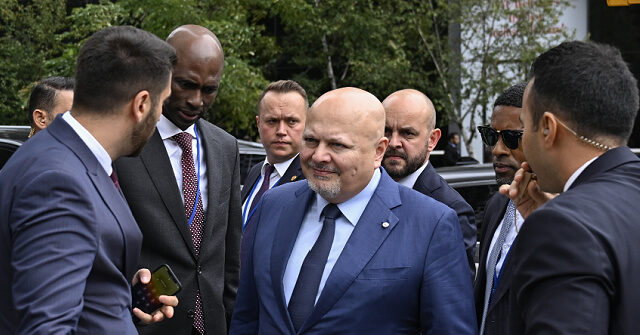In recent developments surrounding the International Criminal Court (ICC), top prosecutor Karim Khan faces allegations of sexual harassment, which he firmly denies. The ICC has acknowledged these allegations, originally reported by the Daily Mail, indicating that they were brought to their attention through an anonymous source. While Khan has maintained his innocence, asserting that his family has been subject to harassment, the situation raises significant concerns about accountability within the ICC and the complexities involved in addressing such allegations. Professionals in the field of psychology note that victims of sexual harassment often struggle to come forward due to fears relating to career reputations and the trustworthiness of the reporting processes.
Khan has held his position at the ICC since 2021 and garnered attention earlier this year by calling for the issuance of arrest warrants for several high-profile figures. His requests notably included Israeli Prime Minister Benjamin Netanyahu and Defense Minister Yoav Gallant, alongside leaders of Hamas. Despite his past success in securing an arrest warrant for Russian President Vladimir Putin—related to his actions amid the invasion of Ukraine—Khan’s recent demands for warrants against Israeli officials and Hamas members have elicited a mix of international reactions and scrutiny. Several leaders from both sides have publicly condemned Khan’s actions, reflecting the contentious nature of the Israeli-Palestinian conflict.
The ICC’s consideration of arrest warrants against Netanyahu and Gallant remains pending, with complexities compounded by the deaths of two Hamas leaders named in Khan’s requests. The requests arise from a pattern of violence, notably linked to a series of horrific attacks by Hamas on October 7, 2023, which significantly escalated hostilities in the region. The legal rationale behind Khan’s charges against Israeli officials hinges on accusations of war crimes and crimes against humanity, asserting that Israel’s military actions sought to systematically target Palestinian civilians in a retaliatory context.
Khan’s statement analyzing the situation emphasized the disparity in civilian suffering endured by the Palestinian population within ongoing military actions. He argued that these actions lead to indiscriminate death and suffering, framing them as unlawful under international law. However, critics such as Netanyahu have vehemently opposed this characterization, arguing that equating the actions of Israeli military forces with those of Hamas undermines the context of self-defense and the threat posed by Hamas terrorism. This rhetoric has sparked heated exchanges, further complicating dialogue and potential pathways to accountability and justice.
Moreover, Khan’s relationship with Israel has deteriorated further following diplomatic engagements with figures like Palestinian Authority President Mahmoud Abbas and Turkish President Recep Tayyip Erdogan, both of whom have been outspoken advocates for Palestinian issues and critiques of Israel’s military strategies. These meetings, particularly under the auspices of the United Nations General Assembly, have drawn criticism and ridicule from Israeli officials who perceive Khan’s actions as biased and politically motivated. Netanyahu responded by dismissing Khan, suggesting that the prosecutor should focus on addressing the actions of those who support terrorism rather than pursuing charges against a nation defending itself.
In light of these unfolding events, the ICC’s jurisdiction and the implications of Khan’s actions necessitate a close examination of how international law interacts with complex global conflicts. The mixed reactions to Khan’s requests for warrants highlight the challenges faced by the ICC as it seeks to uphold justice amid a backdrop of geopolitical tensions. As allegations against Khan linger, they underscore the scrutiny of institutional integrity within the ICC itself, prompting a necessary dialogue about the weight of accountability in cases involving sexual harassment and the institutional mechanisms designed to address such grievances effectively. Whether Khan’s tenure will continue unscathed by these allegations and international blowback remains to be seen, as the interplay between legal authority and international diplomacy unfolds.

